It is still legal for 16 and 17 year olds to marry, but with a law change this week it is now more difficult.
There have been a number of marriage-age tweaks over the years, but this one has a slightly different purpose and history.
And judging by the debate that occurred around it, it may not be the last.
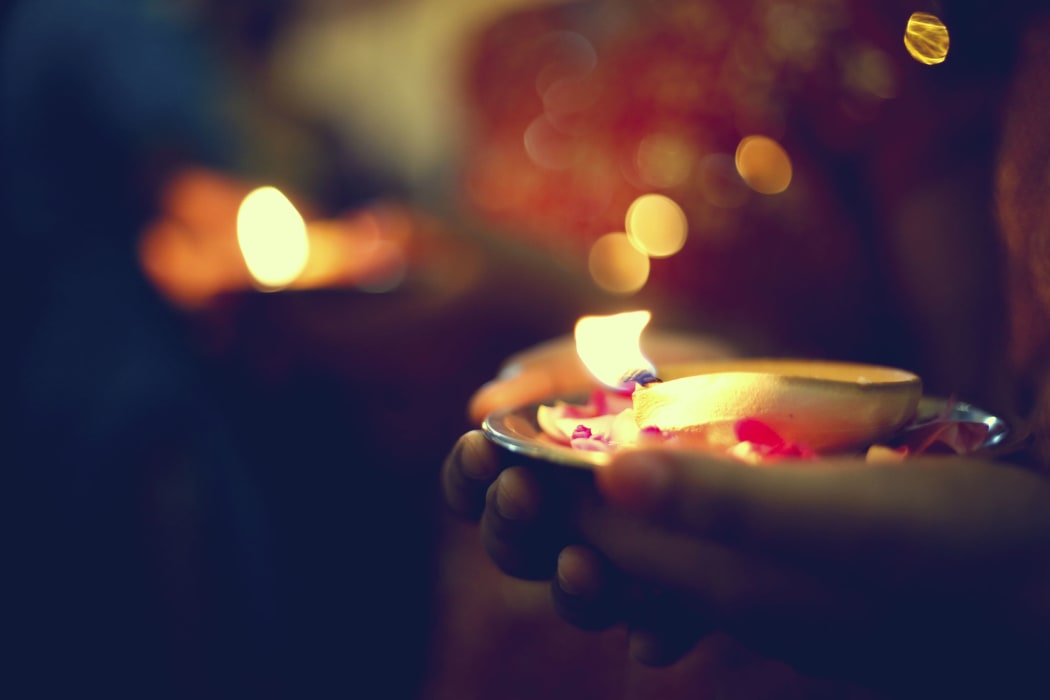
Hindu Indian wedding ceremony in a temple. Photo: suhaimihassan/123RF
The marriage age in New Zealand before 1933 was 12 for girls and 14 for boys (borrowing from British legislation). In 1933 it jumped to 16, but required parental consent if you were under 21. The age for parental consent was reduced in 1955 to those under 18. It has now been abolished entirely.
Under a new law 16 and 17 year olds wishing to wed (or have a civil union) will need permission from the Family Court. They will need to ask a family court judge for permission in person, individually explaining their personal motivations for marriage. So will their parents.
This change is an attempt to prevent the coercive marriage of minors. The situation where parents arrange for a daughter to marry a much older relative, or someone who pays them (potentially to gain a visa).
Numerous MPs pointed out in Parliament that sometimes parents do not have the best interests of their children at heart, and cannot be relied upon to make this call.
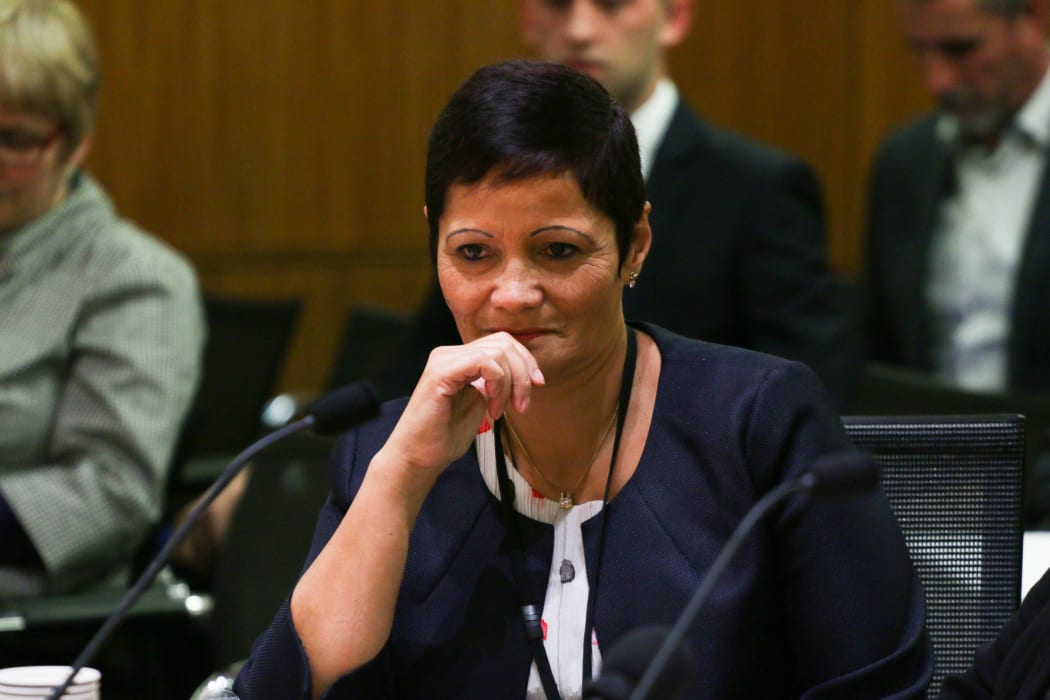
Jo Hayes, sponsor of the Minors (Court Consent to Relationships) Legislation. Photo: VNP / Daniela Maoate-Cox
This law change is the result of a members bill (one championed by an MP that is not in the cabinet) in the name of National Party MP Jo Hayes. She’s not the first MP to have shepherded this Bill, as she noted in Parliament during the third reading debate.
“It has been a long time coming, from its inception by [former MP] Dr Jackie Blue, .... It was her hard work that got the bill put into the biscuit tin. Over the years, since 2010 through to 2017, we waited for this bill to be drawn.”
The bill was finally drawn after seven years languishing in the biscuit tin (from which member’s bills are randomly drawn, unless they are adopted by the government of the day).
Jo Hayes also acknowledged a social science researcher from Shakti (the ethnic women’s refuge), who brought the need for this law change to Jackie Blue in 2010. That researcher was Priyanca Radhakrishnan, whose masters thesis was on this topic. She became a Labour MP in 2017.
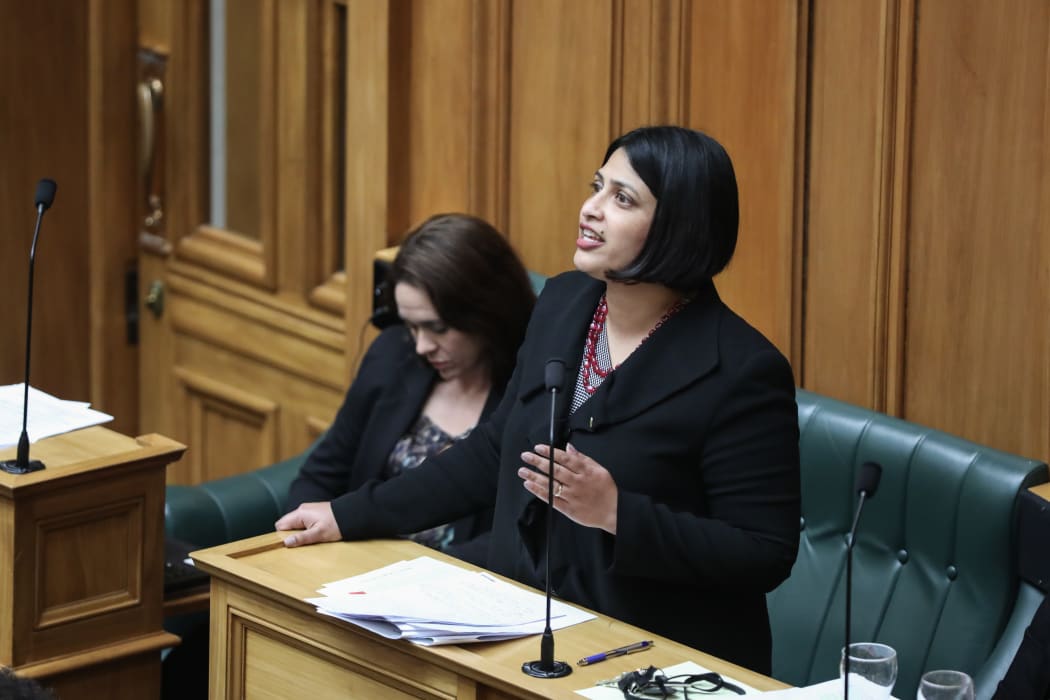
Priyanca Radhakrishnan, who was an instigator of the bill, and also spoke during the third reading debate. Photo: VNP / Phil Smith
Her thesis contains harrowing stories of family coercion. When she spoke on the third reading Priyanca Radhakrishnan dedicated her speech to:
“...the young women who have come forward and sought help, sought support—young women who have either been threatened to be forced into marriage or those who have actually experienced this horrific act of domestic violence. I dedicate this speech to them, but also to the women who have supported them—supported them, walked alongside them, and been their advocates for many, many years because many of them have felt helpless in that journey that they have gone through in supporting some of the young women who have come out for help, because forced marriage is a hidden issue in New Zealand”
Ms Radhakrishnan also paid tribute to “police inspector, Brigitte Nimmo, who headed the Family Violence Unit and worked with me on the issue of family violence. She is no longer with us.”
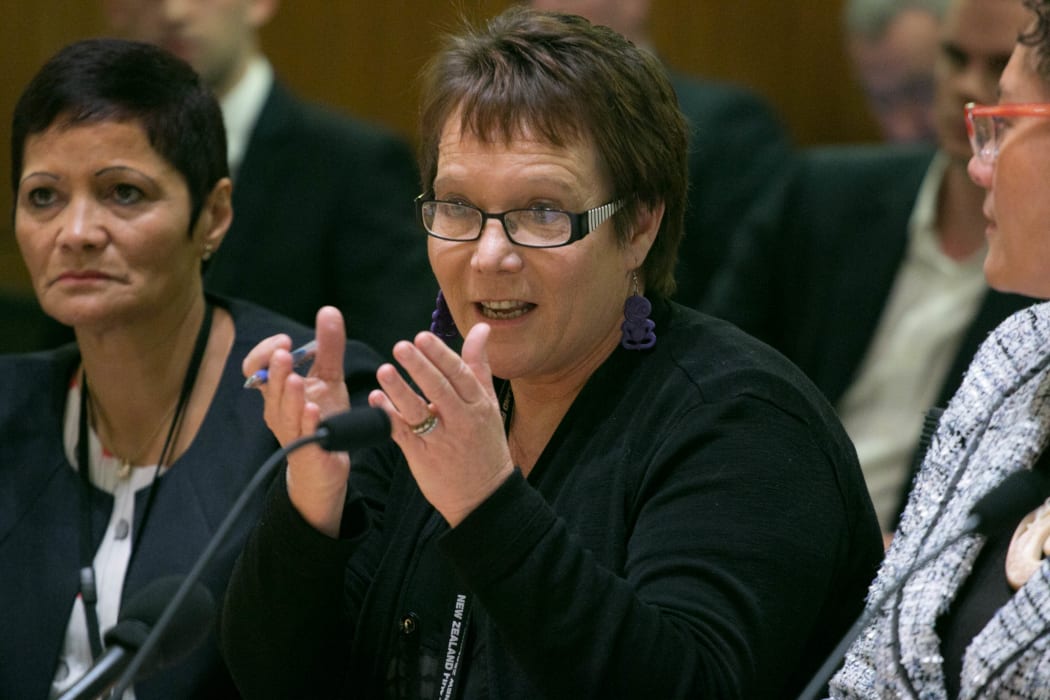
Tracey Martin, spoke for New Zealand First and called for a higher marriage age. Photo: VNP / Daniela Maoate-Cox
Tracey Martin (New Zealand First and Minister for Children) highlighted a submission made on the bill by the Human Rights Commission. The Commission called for a simpler solution via raising the age of marriage to 18. Ms Martin added her own voice to that call.
“This is the next conversation we need to have. If, under so many other pieces of legislation, these are "children", why in this nation are children allowed to marry? Now, that's not a conversation for today, but it's the next one that perhaps, ladies, we might be able to put our signatures to.”
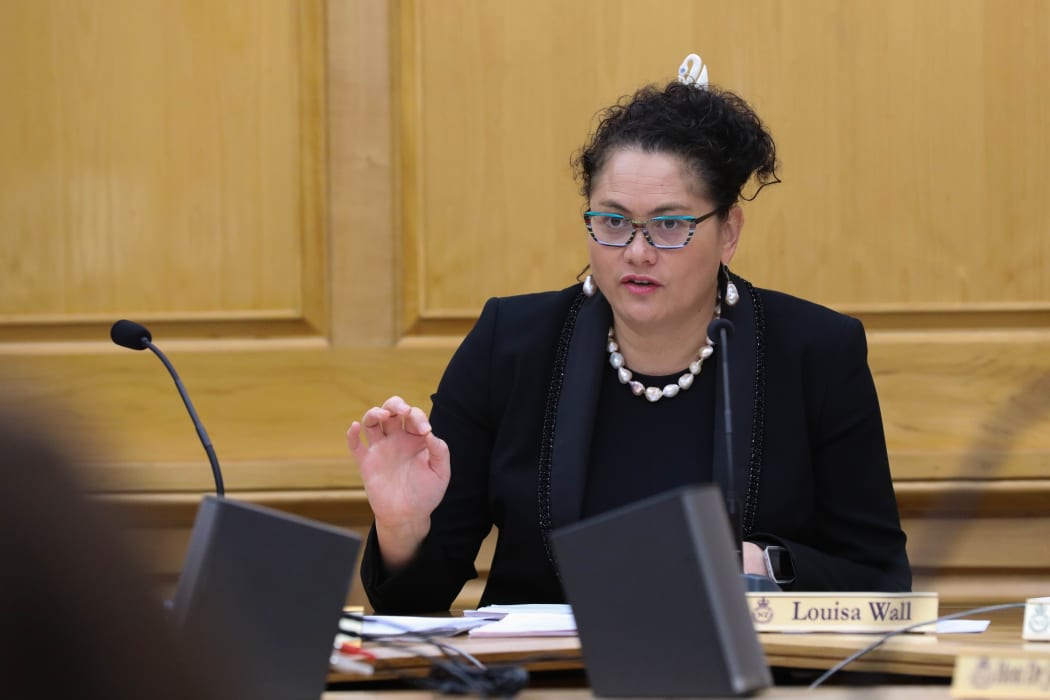
Louisa Wall, who as a co-chair with Jo Hayes of the Commonwealth Women's Parliamentarians helped shepherd the bill. Photo: VNP / Phil Smith
Labour's Louisa Wall provided a gruesome international context to the discussion of child brides, noting that more than a billion girls worldwide are married, more than a third of them before the age of 15.
“Girls as young as five years of age are given away to men. They lose their childhoods, they have unwanted and life-threatening pregnancies, they lose the opportunity of an education, they lose life opportunities, they suffer psychological abuse, they suffer physical abuse, and they're expected to provide sex to their husbands from that young age. So what happens? They have ripped vaginal walls, there are internal ruptures which result in permanent incontinence, and, actually, for some of those girls, they die on the night they consummate their marriage. This is how strikingly repugnant this practice is globally, and for us as a Parliament to prioritise this issue and to actually work together as woman, and men—as colleagues—is something that we should be incredibly proud of.”
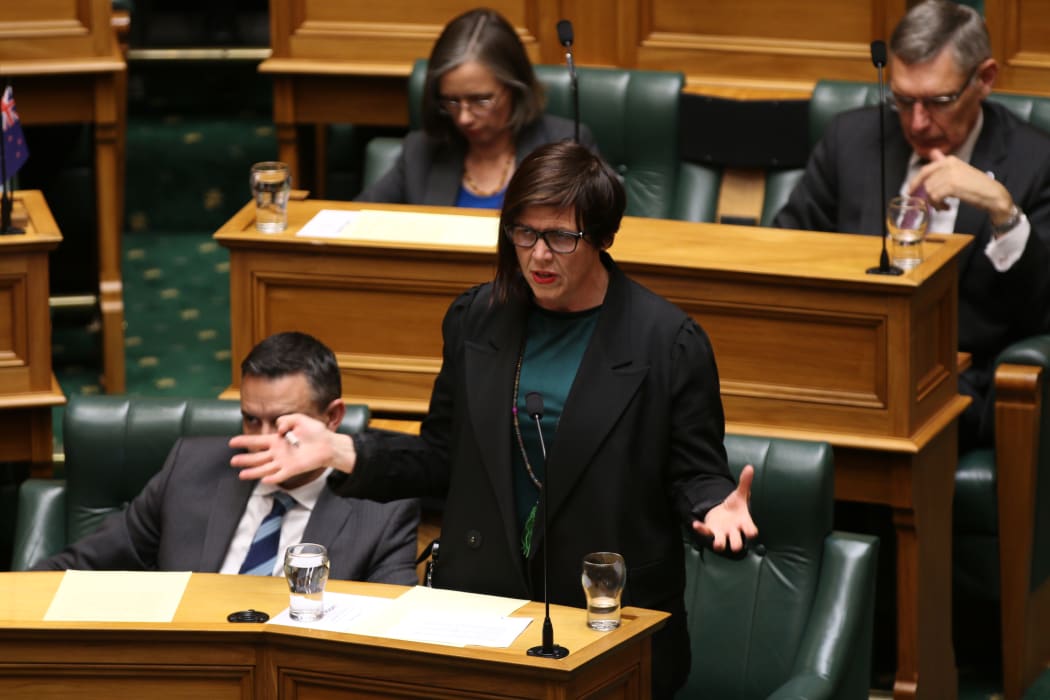
Jan Logie, who just two weeks earlier had her own member's bill passed. Photo: VNP / Phil Smith
In her speech Green MP Jan Logie tried to tease out the size of the problem of coerced marriage in New Zealand.
“Shakti over, I think, a five-year period have talked about working with about 300 cases of forced marriage. So that's not necessarily exclusively young women but does give us a sense because, of course that's not going to be all of the cases. We know that in terms of refuge that they will only see, I think, about 10 percent of the cases of family violence across the country. We know that this is likely to be more significant than what the numbers tell us, particularly in relation to forced marriage, Statistics New Zealand identified 282 16-year-olds and 17-year-olds who were recorded as being married in the 2016 data. So there is a specific population that we need to make sure that we are meeting their needs and protecting, in fact.”
Another change this bill makes is making a defacto relationship with a minor no longer useful under the Citizenship Act unless the relationship has the same level of judicial approval.
The Bill’s sponsor, Jo Hayes altered a whakataukī (a proverb) to end her speech, adding in the colours of all the parties who had helped this bill get unanimously passed.
“Mā kahurangi, mā whero, mā pango, mā kākāriki, mā kōwhai, ka oti ai te mahi. With blue, red, black, green, and yellow threads, our work has been done.”


